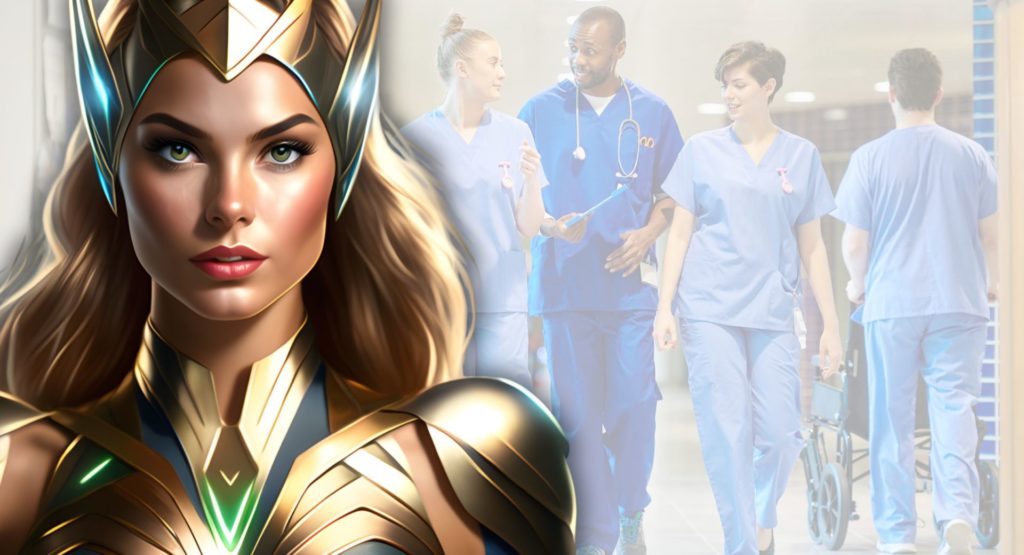Science
Galway Research Team Explores True Values of Heroism in Superheroes

A collaborative study led by the University of Galway aims to redefine the concept of heroism by examining the characteristics of superheroes and their real-life counterparts. Involving teams from the University of Florida and the University of Arkansas, the research explores the idea encapsulated in the phrase “not all superheroes wear capes.”
The study focuses on the behaviors, missions, and values associated with both superheroes and villains, linking these fictional narratives to our understanding of true heroism in everyday life. Professor of Medicine Derek O’Keefe discussed the findings with journalist David Nevin, emphasizing the importance of these insights in shaping public perception of heroism.
Examining Superheroes Beyond Costumes
While the study acknowledges the visual aspects of superheroes, such as their costumes, it primarily investigates the deeper values that define heroism. The researchers analyzed a diverse array of superheroes, considering how their actions and motivations reflect real-life heroic behaviors. This approach seeks to illuminate the qualities that make someone a hero, whether in fiction or reality.
Professor O’Keefe stated, “We wanted to explore how the characteristics of superheroes resonate with the values we admire in real people. The notion that heroism exists in various forms is crucial to this research.” This perspective highlights that heroism is not confined to extraordinary feats but can be found in everyday acts of kindness and bravery.
Connecting Fiction to Reality
The research also delves into societal perceptions of heroism, examining how cultural narratives shape our understanding of what it means to be a hero. The phrase “not all superheroes wear capes” serves as a foundation for this exploration, suggesting that heroism can manifest in numerous ways, often unnoticed or uncelebrated.
By drawing parallels between fictional superheroes and real-life individuals who exhibit similar traits, the study aims to foster a broader appreciation for the various forms of heroism. This includes recognizing community leaders, healthcare workers, and everyday citizens who make significant contributions to society.
The findings of this study are expected to resonate beyond academic circles, potentially influencing how communities engage with and recognize acts of heroism. As discussions around heroism evolve, the research encourages a more inclusive understanding that honors both fictional and real-life heroes alike.
Through this innovative approach, the study led by the University of Galway not only redefines the essence of heroism but also encourages a thoughtful dialogue about the values that unite us in our pursuit of a better society. The implications of this research extend to educational programs, community initiatives, and public discourse, fostering a culture that appreciates heroism in all its forms.
-

 Top Stories4 weeks ago
Top Stories4 weeks agoTributes Surge for 9-Year-Old Leon Briody After Cancer Battle
-

 Entertainment2 months ago
Entertainment2 months agoAimee Osbourne Joins Family for Emotional Tribute to Ozzy
-

 Politics2 months ago
Politics2 months agoDanny Healy-Rae Considers Complaint After Altercation with Garda
-

 Top Stories2 months ago
Top Stories2 months agoIreland Enjoys Summer Heat as Hurricane Erin Approaches Atlantic
-

 World3 months ago
World3 months agoHawaii Commemorates 80 Years Since Hiroshima Bombing with Ceremony
-

 Top Stories3 months ago
Top Stories3 months agoFianna Fáil TDs Urgently Consider Maire Geoghegan-Quinn for Presidency
-

 World3 months ago
World3 months agoGaza Aid Distribution Tragedy: 20 Killed Amid Ongoing Violence
-

 World3 months ago
World3 months agoCouple Convicted of Murdering Two-Year-Old Grandson in Wales
-

 Top Stories4 weeks ago
Top Stories4 weeks agoNewcastle West Woman Patricia Foley Found Safe After Urgent Search
-

 Top Stories2 months ago
Top Stories2 months agoClimbing Errigal: A Must-Do Summer Adventure in Donegal
-

 Top Stories2 months ago
Top Stories2 months agoHike Donegal’s Errigal Mountain NOW for Unforgettable Summer Views
-

 World3 months ago
World3 months agoAristocrat Constance Marten and Partner Convicted of Infant Murder









